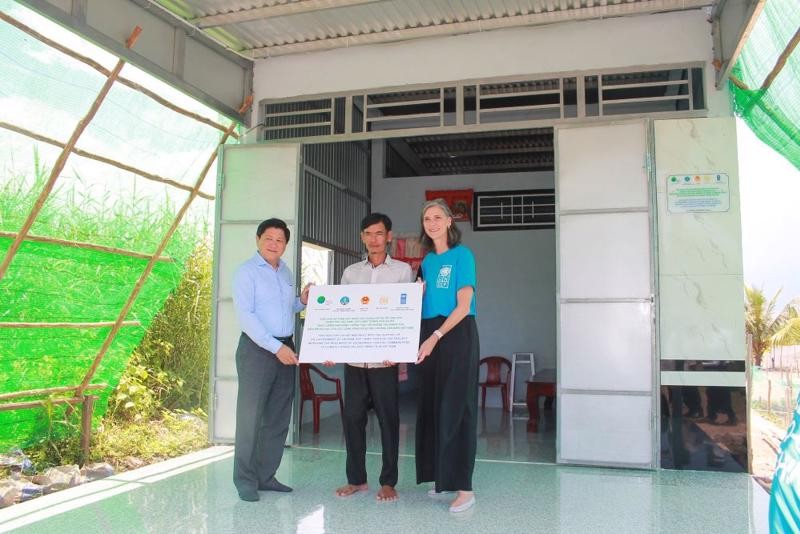Vietnam was supported by EU and France against climate change
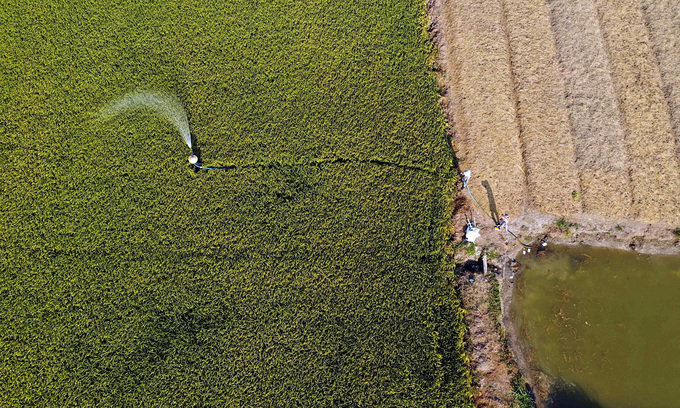 |
| Farmers in Go Cong Tay District in Tien Giang water their rice field using water from a pond, March 2020. |
The European Union (EU) and the French Development Agency (AFD) have reached an agreement to strengthen their joint-cooperation for increasing Vietnam’s resilience to climate change and natural hazards, and trying to ease the impact of COVID-19 in the Southeast Asian nation.
The EU will provide the money as a non-refundable grant to the AFD to run the fund. The latter will in turn provide loans for strategic projects in Vietnam to improve the management of water and other resources and respond to challenges like floods and coastal erosion that climate change exacerbates.
EU ambassador to Vietnam, Giorgio Aliberti, who signed an agreement for the fund with Fabrice Richy, director of AFD, in Vietnam on Monday, said: "Adaptation to climate change is crucial for the sustainability of Vietnam’s development, and water and natural resources are a key element of it.
"The intention of the new 20-million-euro grant is to support Vietnam on a pathway towards a greener and resilient future and enhance natural resources management that will help restore and preserve ecosystems and boost the resilience of the local population."
Under the agreement, the EU provides a grant of 20 million EUR (nearly US$21.6 million) to the AFD.
In coordination with the Vietnamese Government and local administrations, the AFD will mobilise the Water and Natural Resources Management (WARM) Facility to prepare and implement investment projects co-financed with the AFD loans and Vietnam’s own resources over the period 2021-29 for an estimated total amount of 200 million EUR, reported the VNA.
Vietnam is one of the countries most severely affected by climate change and natural disasters.
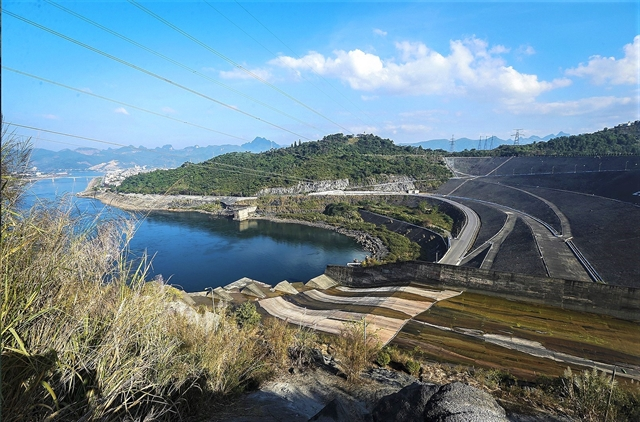 |
| Hoa Binh hydropower plant in northern Vietnam. |
Rising temperatures and sea levels, and the increased frequency and intensity of extreme weather events combined with population growth and urbanisation are increasing the risk of coastal erosion, urban flooding and drought.
According to the World Bank, 70 percent of the country’s population are vulnerable to typhoons, floods, droughts, storm surges, saltwater intrusion, landslides, forest fires, and occasional earthquakes. The risks are exacerbated by climate change.
Floods and storms account for more than 40 percent of all natural disasters.
Vietnam is one of six economies most affected by climate change between 1999 and 2018, according to the Global Climate Risk Index published last year by German environmental think tank Germanwatch.
Rising temperatures and sea levels, and the increased frequency and intensity of extreme weather events combined with population growth and urbanization are increasing the risk of coastal erosion, urban flooding and drought.
This year saltwater intruded 50-110 kilometers into major rivers in the Mekong Delta, even deeper than in 2016, which was considered a very bad year.
Six delta provinces, Tien Giang, Ben Tre, Long An, Kien Giang, Ca Mau, and Soc Trang have declared an emergency over the salinity, informed the vnexpress.
Experts have blamed the El Nino weather phenomenon and Chinese dams on the Mekong for the parching of the delta. Even as El Nino reduced rainfall in southern Vietnam last year, upstream Chinese dams held back water, which also brings sediments to fertilize downstream areas.
 | Half of seas, islands to be surveyed by 2030 At least half of Vietnam’s seas and islands will be surveyed and evaluated in terms of natural resources, and marine and island environment by 2030, ... |
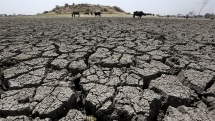 | India: Hottest decade on record, more than 1,500 people killed in 2019 The last decade was India's hottest on record and extreme weather killing more than 1,500 people in 2019. |
| Climate change, corruption behind Venice floods Severe flooding in Venice that has left much of the Italian city under water is a direct result of climate change, the mayor said and ... |
Recommended
 Focus
Focus
35 Years of FES in Vietnam: Fostering Dialogue, Advancing Equity
 Friendship
Friendship
VUFO Appreciates Contributions of American Veterans in Overcoming Consequences of War
 Focus
Focus
Vietnam-Austria Relations: Unlocking the Potential for Cooperation in Key Areas
 Friendship
Friendship
Vietnam - Azerbaijan: Cherished Memories Should Be Carried Forward with New Achievements
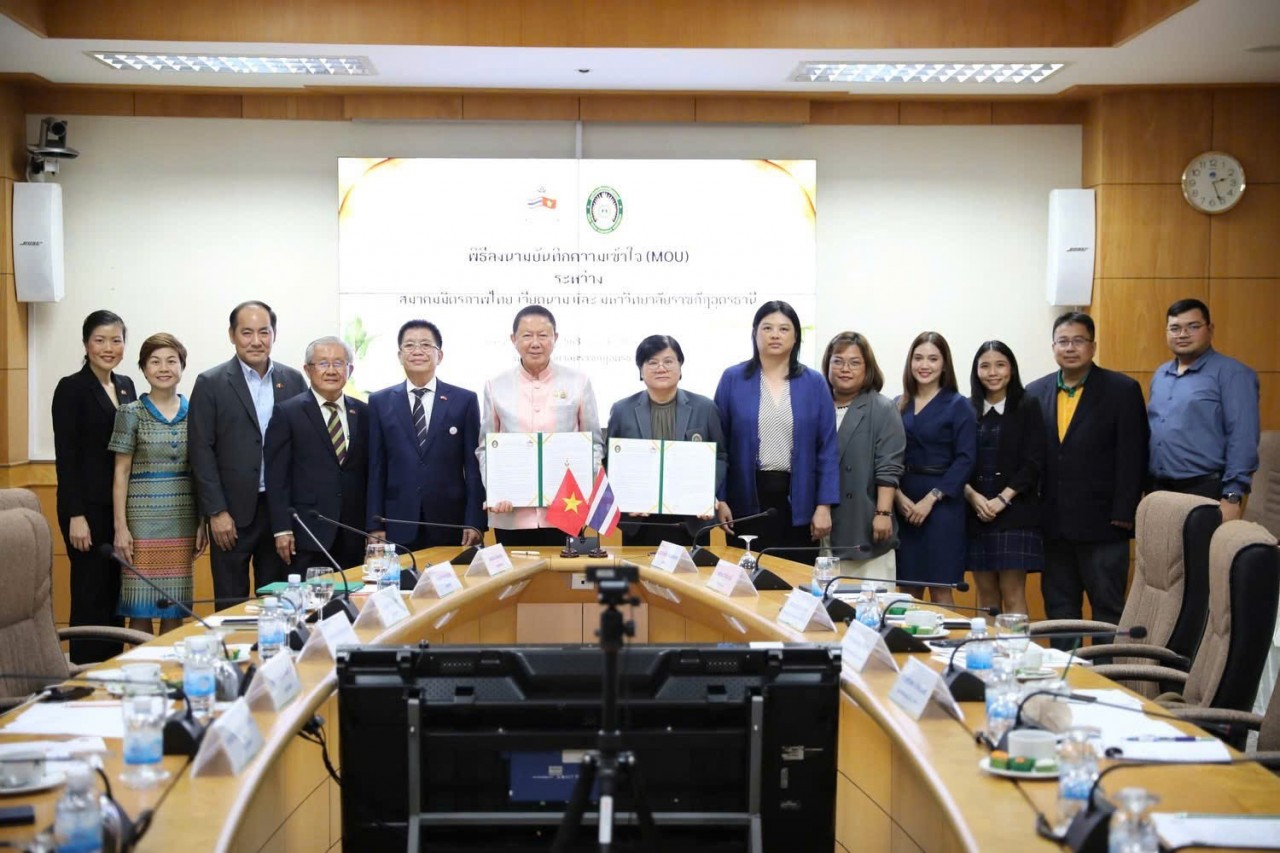 Friendship
Friendship
Center for Vietnamese Studies, Thailand-Vietnam Friendship Association Collaborate on Language Training
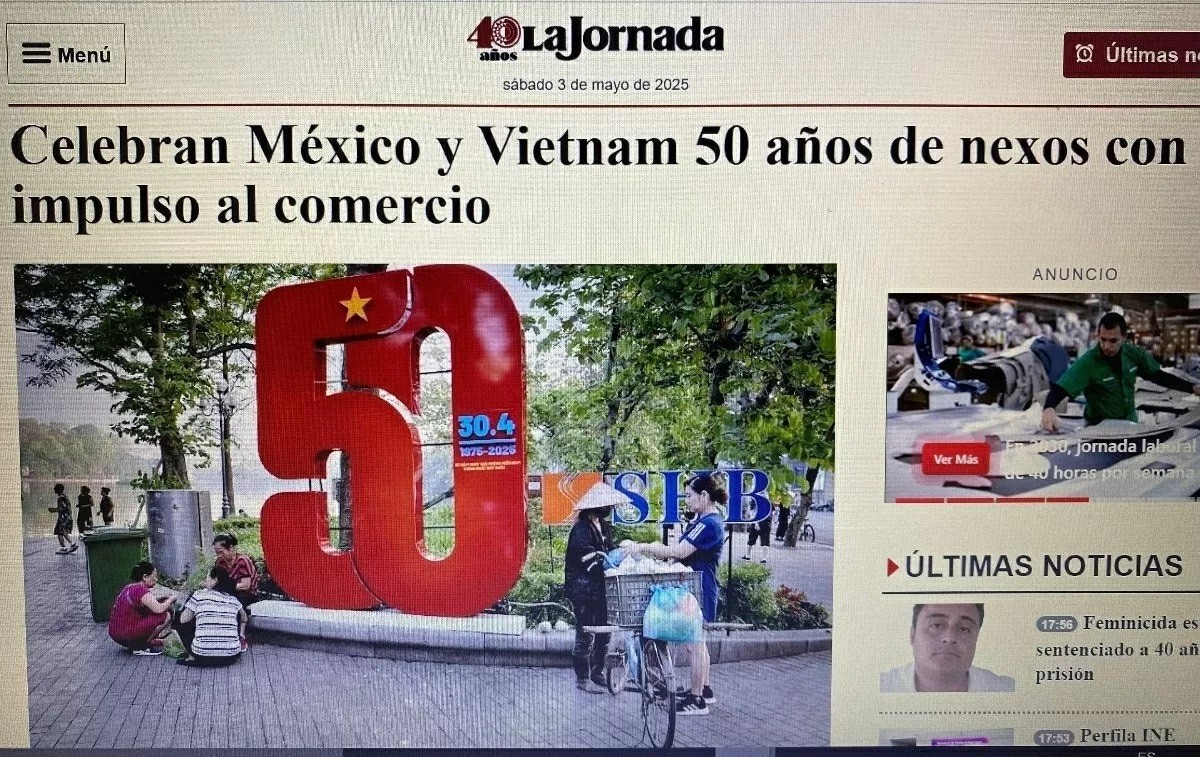 Friendship
Friendship
50 Years of Mexico-Vietnam Diplomatic Relations: Continuous Flourish in All Fields
 Friendship
Friendship
Venezuelan Artists Commemorate President Ho Chi Minh through Revolution Music
 Friendship
Friendship




